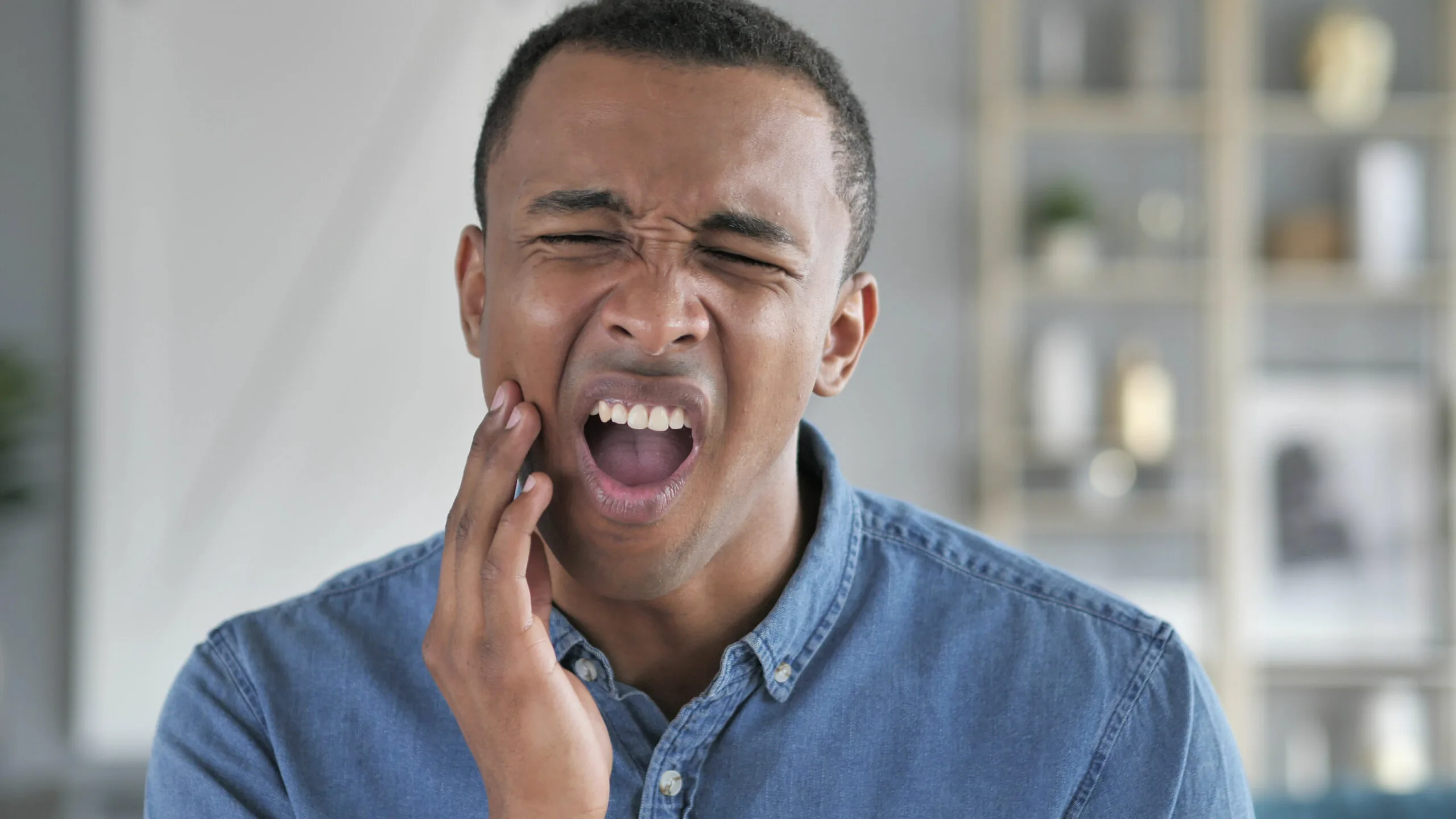 Do you ever wake up with a sore jaw, a dull headache, or sensitive teeth for no apparent reason? You might be one of the millions of people who grind their teeth at night. This condition, known as bruxism, often happens while you sleep, making it difficult to detect. At the Center for Dental Anesthesia, Dr. Zeyad Mady and Dr. James Geren want to help patients in Alexandria and across Northern Virginia recognize the subtle symptoms before they lead to bigger problems.
Do you ever wake up with a sore jaw, a dull headache, or sensitive teeth for no apparent reason? You might be one of the millions of people who grind their teeth at night. This condition, known as bruxism, often happens while you sleep, making it difficult to detect. At the Center for Dental Anesthesia, Dr. Zeyad Mady and Dr. James Geren want to help patients in Alexandria and across Northern Virginia recognize the subtle symptoms before they lead to bigger problems.
Bruxism is the involuntary clenching, grinding, or gnashing of teeth. While occasional grinding might not cause harm, chronic nighttime bruxism can have a significant impact on your oral health. The constant pressure can wear down enamel, fracture teeth, and damage dental restorations. Understanding the signs is the first step toward protecting your smile.
Here are five sneaky signs you may be grinding your teeth at night.
1. Morning Headaches and Jaw Pain
Waking up with a dull headache or tenderness in your jaw muscles is a classic sign of bruxism. The intense force exerted during grinding strains the muscles of your face, neck, and jaw. This can lead to persistent discomfort that you might mistake for a typical tension headache or sinus pressure.
2. Unexplained Tooth Sensitivity or Damage
If you notice your teeth becoming more sensitive to hot or cold temperatures, bruxism could be the culprit. Grinding wears away the protective outer layer of enamel, exposing the more sensitive dentin beneath. You might also spot tiny chips or fractures on your teeth, or notice that they appear flatter or shorter over time.
3. Disrupted Sleep
Bruxism can be surprisingly loud. Your sleep partner might be the first to notice the grating sounds of your teeth grinding at night. The muscle activity associated with bruxism can also disrupt your sleep cycle, leaving you feeling tired and unrested even after a full night in bed.
4. Earaches and Ringing
The temporomandibular joint (TMJ), which connects your jaw to your skull, is located just in front of your ears. The strain from bruxism can inflame this joint, leading to a condition called temporomandibular disorder (TMD). This can cause pain that feels like an earache or a ringing sensation known as tinnitus.
5. Tight Facial and Neck Muscles
The muscles used for chewing are powerful, and when they are overworked all night, the tension can radiate. You may feel stiffness or tightness in your cheeks, temples, and even down into your neck and shoulders. This chronic muscle tension is a common, yet often overlooked, sign of nighttime grinding.
Protecting Your Smile from Bruxism
If these symptoms sound familiar, it’s important to seek professional guidance. At the Center for Dental Anesthesia, serving Fairfax, Prince William County, and the surrounding areas, Dr. Mady and Dr. Geren can diagnose bruxism and its potential connection to TMJ disorders. We provide a wide variety of effective treatment methods tailored to your specific needs.
Custom-fit mouth guards are a common and highly effective solution. They create a protective barrier between your upper and lower teeth to absorb the force of grinding. In some cases, prescription medications, therapeutic massage, and simple lifestyle changes can also help manage the condition.
Don’t let nighttime teeth grinding silently damage your oral health. Contact the Center for Dental Anesthesia today to schedule a consultation and find the right solution for you.
Contact Center for Dental Anesthesia:
703-379-6400
Location (Tap to open in Google Maps):
5284 Dawes Ave
Alexandria, Virginia
22311
